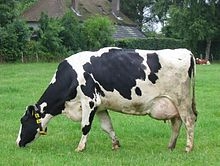
The word vaccine was created by Edward Jenner and comes from the Latin word “vacca”, meaning cow. The physician pioneered vaccination and created the smallpox vaccine, the world’s first vaccine, in 1796.
After observing that those infected with cowpox did not get smallpox, Jenner injected a child with cowpox matter from a blister. Following the procedure, the child did not get sick. This was the first known example of smallpox vaccination.
Jenner contacted the Royal Society describing his experiment and observations, but the paper was rejected. Later in 1798, having added a few more cases to his initial experiment, he published a small booklet titled An Inquiry into the Causes and Effects of the Variolae Vaccine. Vacca means cow, and vaccinia translates to cowpox. Jenner decided to call the procedure ‘vaccination.’
Vaccination became widely accepted and gradually replaced the practice of variolation. At some point in the 1800s, the virus used to make the smallpox vaccine changed from cowpox to vaccinia virus.
In recent years, scientists have questioned the origins of the smallpox vaccine. In 2017 The New England Journal of Medicine published research stating that the procedure used to prevent the spread of smallpox was likely horsebox, not cowpox. The study included an analysis of a vaccine created in 1902 by the Philadelphia company H.K. Mulford. The historic containers held a smallpox vaccine, manufactured more than a century after Jenner’s breakthrough. When scientists sequenced its DNA, they found it most closely resembled the genome of horsepox.
Either way, whether the first vaccine’s origin lies in cows or horses, its name etymologically derives from the Latin word for cow.
Credit : Logically.
Picture Credit : Google




